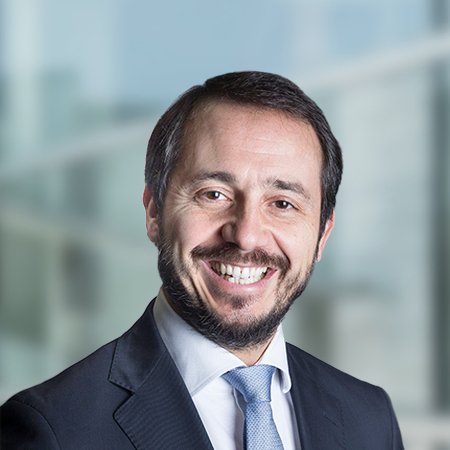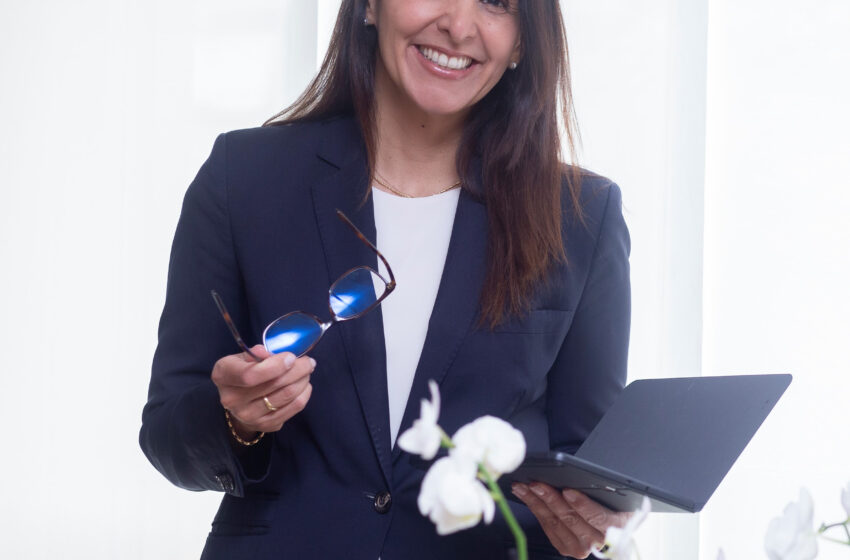Committed to a sustainable future

When a lawyer leaves the lucrative partnership of Morais Leitão at the age of 36, eyebrows would normally be raised. Even more so, when the said lawyer was one of their youngest partners ever at the age of just 31. Rui de Oliveira Neves, however, is the clear exception to the rule. During the last eight years, he has built one of the biggest and most sophisticated in-house Legal structures in Portugal. The team under Rui’s leadership encompasses Spain, Brazil and Africa. During this interview, we go behind the scenes at Galp and understand what it takes to be selected on their panel of lawyers. As Iberian Lawyer uncovers, expertise and sector knowledge can be more important than a law firm’s size. We also learn about Galp’s climate change ambitions and their target to reduce absolute emissions from operations by 40% and net-zero on all scopes by 2050.
After fifteen years of working as a private practice lawyer, what made you decide to go in-house?
I was very happy with my career at Morais Leitão, but I was given the challenge with Galp of combining business with law as part of the in-house role. The idea was to create an in-house firm, and develop something based on a professional approach, similar to that of a law firm. This triggered my interest and it made a lot of sense for me, to pursue this project.
How many people work in the Legal department that you lead today? Have you grown the team?
From my perspective, an in-house Legal department is almost like an ecosystem within the business that you need to develop, in order to support the company in appropriate Legal terms. This includes compliance, economics and a multidisciplinary mindset. This equates to an in-house firm with the size necessary to support the business and engage the internal client and relevant stakeholders. The external law firms then give us scalability and their experience with different clients. We also engage Legal professors to support our Legal function with additional expertise and Legal knowledge. This allows us to have knowledge coming into the business, to give education and training to our lawyers and keep up to date and with the pace of the development of Legal knowledge to perform our functions to the best of our ability. We don’t have a large team but we are fourteen lawyers in Lisbon, five in Spain and four in Brazil. Our expertise is Energy Law. It can be Litigation, Corporate, Finance, Regulatory, but what we do is always Energy related. My team is very used to working with Oil & Gas, Power and Renewables. We then use external law firms for projects where we need additional resources. For example, we currently have under management more than 12,000 Litigation files. We have a five lawyer team that does M&A and Finance internally, but there are some transactions and scale where we need to externalise to outside counsel.
How do you select your external Legal advisors? Do you have panels/have lawyers pitch regularly for work? How much do you value sector experience?
Part of the process in building our internal Legal ecosystem was to create a panel of external advisors/law firms. We had to have a wide range of practitioners in Portugal, Spain, Brazil and Africa. We launched a panel system that allows us to engage with the Legal community in order to understand their strengths and weaknesses and select the most appropriate lawyers depending on their Legal areas of expertise. Our panel currently has more than 70 lawyers and we make our selection based on individual lawyers and teams, not law firms. For example, we have a lawyer who is one of the best in Maritime Law, who is a single practitioner and works with us. From our perspective, it is not about size, but expertise. We also work with the big law firms with a strong practice in say Public Law, but at the same time regularly externalise work to a single practice Public Law expert. One of the strengths of our project is based on effective Legal knowledge, and we have the trust of the board to select single practitioners as well as bigger law firms. This year we are in the process of expanding our panel both in terms of coverage and in terms of geography to use it in Spain, and estimate we will end up with more than 100 external lawyers.
What changes have you seen in the Legal market in the way law firms communicate with GCs?
I think that there have been substantial changes. We did a research study of the Portuguese Legal market’s inhouse structures and assisted one of the firms in creating an in-house club. We have been very active in supporting law firms to have a different approach to general counsel, more business-centric and where a transversal and multidisciplinary approach generates value for businesses. I believe that also the communication has improved as the quality and sophistication of in-house teams has risen in Portugal and now raises the bar for everybody, which can only be a good thing for the sector.
What is your biggest frustration when working with external law firms?
I work not to be frustrated. The way to avoid this is to align expectations. The first thing we do when working with a new external counsel is to align our expectations with the service delivery. Therefore our only frustration is when our expectations are not met. Predefining the risk profile in each scenario is also very important and goes a long way to reducing the possibility of frustration or things not panning out the way we expected from the outset.
What do you value the most when working with external counsel?
What I value the most is that the lawyer fully understands what they have to deliver. The level of delivery that the client is looking for is what I value the most. Timing, type of work, risk vs reward assessment and how is it going to be made and aligned, and what are the solutions. I am really driven by risk analysis and a solution-driven approach to help us make the best choices.
When was the last time a law firm really impressed you?
I think that there are two ways to be impressed. I like to be impressed by the lawyers that work with me, but I also love to be impressed by the lawyers that work on the opposite side. If they are doing their job properly and defending their client, that causes a big impression on me. That means that if in the future there is no longer a conflict to work with them, it is the best way for me to truly assess how good they are and how well they operate.
ExxonMobil, Chevron and Royal Dutch Shell have all been in the news recently, with the latter ordered by a Dutch court to take much more aggressive action to drive down its carbon emissions, in line with the Paris agreement. What is Galp’s stance on this?
Climate change Litigation has just surfaced. As society demands governments and businesses to be more environmentally sustainable, there is increasing environmental activism using courts to pressure change. This requires Energy companies to be bolder and to elevate their ambitions in terms of decarbonisation targets to align with people’s expectations. I am proud that this is the path that Galp is taking. Capital Markets Day happened on June 2nd where Galp announced its climate change ambitions. By 2030 Galp targets to reduce absolute emissions from operations by 40% (scopes 1&2) and carbon intensity (scopes 1, 2 & 3) by 40% on a production-based approach and 20% on a downstream sales-based approach. These ambitions are framed within the target of Galp becoming net-zero on all scopes by 2050.
Are there any significant changes on the horizon in the Legal market in Portugal?
I see two main drivers of change. Technology and new ways of working, such as design thinking, as enablers of the Legal profession are accelerating and will bring new opportunities and improved Legal services, supported on data. On the other hand, the government is in the process of proposing that firms can become multidisciplinary like we have seen in other countries, which could be an important change for the Legal sector. Much like the emergence of the big four accountancy firm’s Legal arms in Spain, this proposed change to the Law in Portugal could have a huge impact on the Legal market. It will also have a big impact on the way the international law firms look at our jurisdiction, and it could start a trend where we see more of them open shop in Portugal.
By Michael Heron.
To read the full article on issue number 106 click here












